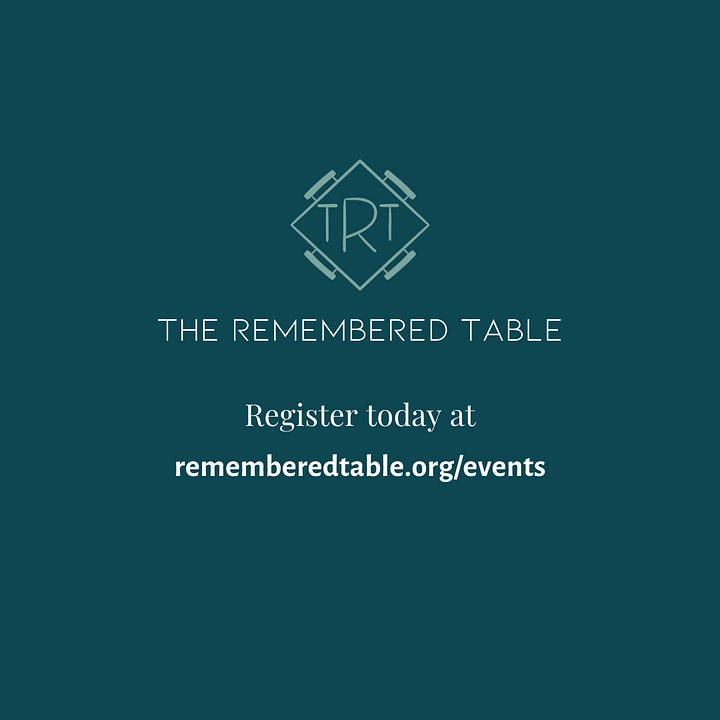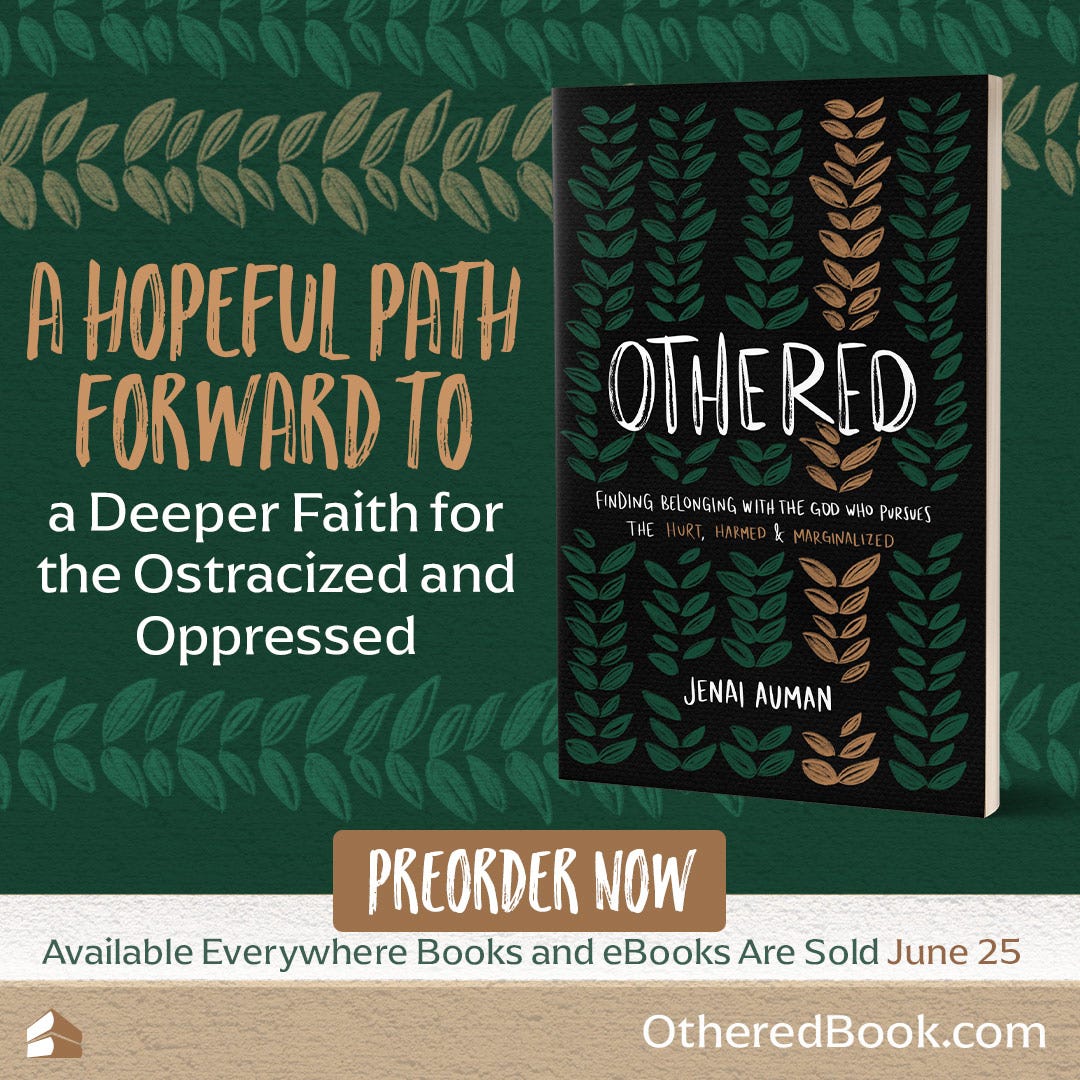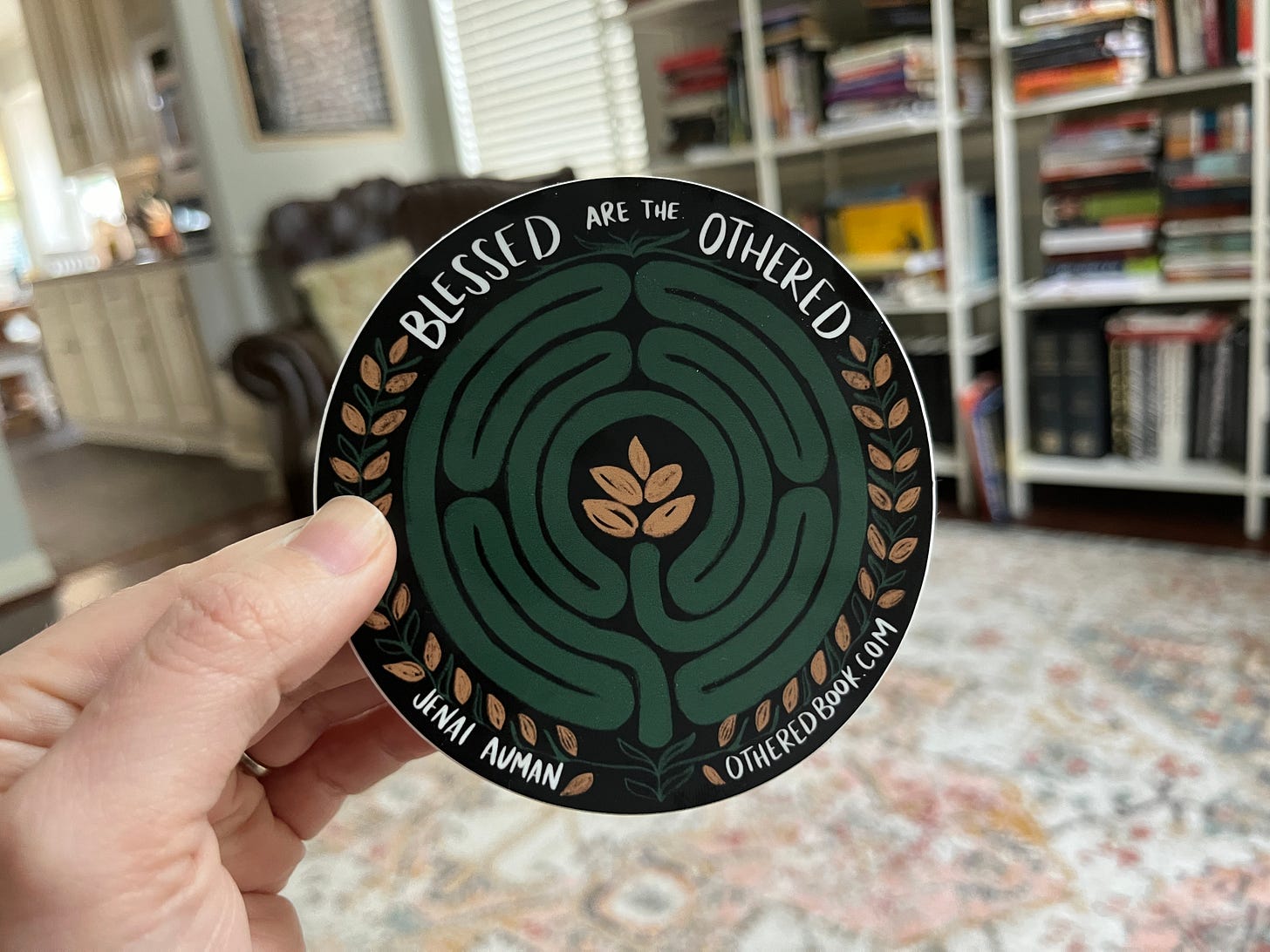The Question I'm Most Asked When Talking About *Othered*
+ avoiding legal action & info on the forthcoming early reader bookclub
The number one question I’ve been asked when discussing Othered:
“How did you think through ways to avoid legal action when writing Othered?”
(I want to briefly mention that this is not legal advice. I am not qualified to give you legal advice. Below, I’m sharing my experience and how I’ve navigated it.)
How I Tell My Story with Care
First, I’ll mention that a person can make a claim against you for anything. If they know your name and can identify you in legal documents (or if they have a lawyer who can hunt down that information for them), you could find yourself caught up in a civil suit for any reason.
Some people do just that.1 And you can’t avoid it. Many of the people who choose to pursue civil action against others know it is unavoidable. They know the hassle it is for a person to lawyer up, pay fees, and find documentation proving one’s innocence. They do this to waste another person’s time, and they hope that it’s bothersome enough that the named defendant will choose to settle (regardless of innocence). If choosing to settle, the plaintiff may get compensation and some sense of self-righteous justification for whatever perceived slight they felt.
Second, for those who are new here, I wrote a book called Othered and it contains *pieces* of my story of working on a toxic church staff. It isn’t a memoir. I weave together personal narrative with theological and trauma-information exposition so that readers have access to language to define and name the stories they have lived.
When I first signed with my agent in 2022, I told her Othered was the first book I wanted to write. She agreed. Othered speaks to our current cultural moment, but it would also serve as an evergreen guide and companion. But I, likewise, asked her how I could write this book without being accused of libel, slander, or defamation. She told me that if I was already thinking about it, I would probably do a good job of avoiding it. She was right; I wrote Othered with both meaning and mindfulness.
Third, having other author friends who have woven personal narrative into their books, I knew that a traditional publisher does what is called a “permissions read”. A permissions read is when an editor reads through to determine if there are any stories in the book that you need to seek permission for from friends or family members. I knew this was going to be a part of the editorial process for Othered, and I knew I wouldn’t get permission from the people and pastors mentioned in Othered.
I didn’t have to get permission. Instead, my publisher did do a legal read. I had to go through a separate corroboration process. This meant that in-house counsel for my publisher read through my manuscript to determine what part of the book needed evidence or corroboration should action ever be taken against me or my publisher.
I have to give a shout out to my agent, Angela. The moment I got the email about corroboration, Angela texted me. She was attuned to how difficult this story was to write and how I might have been potentially triggered by having to corroborate (or “prove”) my story to my publisher. She previously worked as an editor for Zondervan and helped anchor me in the process, telling me that the legal read and providing evidence/corroboration served to better protect me and the book.
Fourth, I kept the receipts. 👀 🙌 I have evidence. I have emails. I have screenshots of text messages. I have audio and video recordings. Under wiretapping law, Texas is a one-party consent state, meaning that to record audio and video you need the consent of at least one party. As I was party to the conversation, my consent counted as the one party necessary. However, for one meeting I discuss in Othered, I told my pastors that I would be recording the meeting if they wanted me to participate. Even knowing they were being recorded, they said some pretty revealing things.
For this process, I needed to pair the evidence I had with the pieces of writing in Othered my publisher flagged. I shared screenshots, emails, and found the timestamps in the audio and video. (That last part was a doozy and hard for me to listen/watch and get through.)
If I didn’t have evidence, I needed someone who could corroborate my story. If I didn’t have anyone who was willing to corroborate my story (I did ask one pastor for corroboration and he declined), then I had to adjust the language in the book to clarify that I was writing from memory. So instead of a sentence reading, “He said this,” I had to adjust to “I remember this man saying …” It makes for weaker writing, and what I wrote is true, but I had to articulate that I was writing something I was remembering.
The Untold Pieces
I was able to write Othered with confidence because I have the affirmation of the rest of the story I left untold in Othered’s pages. The executive director who raised his voice at me in the first chapter was no longer working there by the time I completed my first year on staff. He left the church years later after an investigation revealed he displayed abusive leadership tendencies. This was after multiple families came forward with stories of having experienced spiritual abuse. (Many thanks to some of these members for sharing this documentation with me).
I don’t share all the behaviors I experienced from my lead pastor and why I felt distrust with him in Othered. I don’t even mention all the behaviors and words he had said and used against me. But I wasn’t the only person who had “relational conflict” with him, and he was asked to leave the church about 15 months after he “informally off-ramped” me with the aid of the other pastors.
I was able to write confidently because I knew that if the other elders stopped parsing their words, they would say I wasn’t treated right. They have never said I was “mistreated.” Maybe saying so would be too jarring for them as it was jarring for me. But I do remember a pastor telling me they “mishandled” my “situation.”
The problem is the Church and its leaders should not be “handling” people.
I was able to tell my story with care, compassion, and confidence because I knew how to slip the trap created by confusing words.
Your story matters. Even if it doesn’t get published.
Many people do not feel safe telling their stories, let alone publishing them, because those who harmed them still hold tremendous power. The uniqueness of my story is that my pastor and executive director are no longer leaders at my former church. Not only that, they had to leave their positions of power BECAUSE of disqualifying behavior. Thus, they no longer have the social power of the entire community I held dear at their disposal to further ostracize me as I continue to speak up and out. At least, not anymore than they already have.
Many who have similar stories might not be sharing, writing books, articles, and so on because they might not be able to. Some of you might have signed non-disclosure agreements because you needed the severance so your family could live. Some of you might not have the emotional or mental capacity to write your story for a readership. Some of you might simply not care to share your story, but you are unashamedly advocating against abuse in the church because you know that pain. We have the agency and ability to share in the ways we are able.
I published Othered from a place of healing, safety, and support, but I also thought my unique voice, experience, and education could add to the conversation and provide language in ways others haven’t. Othered came about because of the pain I experienced while working in a toxic staff environment, but I had eyes to see the toxicity and pain because I have felt the harm of othering throughout my life.
My hope is that the readers of Othered learn that, through the wisdom of their wounds, they have eyes to see the pain in the world in ways the complacent cannot. I hope people who have been wounded find the beauty of their otherness as they heal. Ultimately, I want us to learn that when we embrace ourselves, including the ways we are weird and different, we are better able to breathe life and extend love to the neighbors around us, even those not like us.
I hope you consider reading Othered.
In fact, this my spiel: Please consider preordering Othered today. It is hard to write a book on abuse of power in the church in Christian publishing. It is especially hard as a woman of color asking for a seat at the table wherein the cultural majority tend to guide the conversation. Writing Othered is a part of my work of resistance. It is how I’m hoping to build bigger tables and make them more hospitable to those traditionally marginalized.
If you have experienced pain in the church, I wrote Othered with you in mind. I tried to write it so that you felt like you have a friend sitting next to you.
If you haven’t experienced pain in the church, I bet you know someone who has. I wrote Othered for you so that you could learn to sit with and help hold the stories of those who have been othered.
And if you are a church leader, shepherding those whose bodies hold painful stories, I wrote it for you, so that you would have eyes to see, too.
With you and for you,
For Those Who Preorder ⬇️
I’ve been preparing some preorder thank you gifts to make available to you all in the next few months. Most of them will be in the form of a digital download made available through SubStack (so stay subscribed if you want additional info).
But I’ve also illustrated and printed many of these fun stickers.
You can read more about the finger prayer labyrinth sticker on my previous post. ⬇️
I’m waiting on one final digital download to be completed. Once done, I’ll tidy it all up and make it available to those who preorder soon. (Keep your eyes peeled on Substack for the info!)
A few of you have also asked about a book launch team. I have decided not to do a book launch team, and, instead, I’ll be hosting a small reading club complete with a couple of ZOOM meetings. Those who are either paid subscribers on Substack or who have preordered the book will be invited into the reading club.
Two Cool Things Going On:
1. Othering & Belonging: A Free Class with The Remembered Table
I’m hosting a FREE class with The Remembered Table, discussing othering and belonging in the Christian church.
You can connect with others, but we’ll also host a Q&A as well. We can discuss how spiritual abuse and othering are intertwined realities.
I’ll also host a book giveaway! All who attend will be entered, and I’ll send you a signed copy of OTHERED and other goodies after the class.
I repeat, this class is FREE! You can register HERE.


2. The 2024-2025 PAX Fellowship
I’m facilitating the Contemplative Activism and Spiritual Formation Cohort in the next PAX Fellowship. 💃


I’ll be facilitating a cohort where we’ll discuss the importance of nervous system regulation AND dysregulation, contemplative practices that fosters holistic formation, all in the service of helping us better love God and our neighbors as ourselves.
The PAX Fellowship is for BIPOC folx (roughly between the ages of 25-35), and it starts this fall. Applications are open today and close later this summer.
New PAX update! The tuition for the PAX fellowship was previously $500 out-of-pocket for fellows, but generous donors have helped lower costs! The tuition for fellows is now only $150!
Share with BIPOC friends!
If this post was helpful, considering tapping the heart 🖤 icon & leaving a comment. Your engagement helps me reach more people who may need a few words of hope. Encourage your friends to subscribe if you think the words here might be helpful for them.
You can find past posts from Othered by visiting jenaiauman.substack.com
I previously worked as a photographer and I continue to follow a photography blog where one photographer has made it her mission to name others who steal photos to promote their services. Because she does this, she’s found herself in the middle of multiple suits against her for defamation or, funnily enough, copyright infringement. If you feel like going down a rabbit hole, you can check out the Substack,
.







This is really helpful information, I've wondered about a lot of this as a writer, especially if you don't get permission. Thank you for sharing and looking forward to your book!
Wow this is exactly what I needed to read. I’ve been writing in a similar way. My research and emails, evidence etc is very solid, however I’m still careful to write in such a way that I’m using pseudonyms and non identifying details, while still being visual enough that those who were there, who were part of it, know.
I’ve been thinking through how to put what I’ve written into a book. For now it’s all been through Substack.
Other victims have also written their own stories and we’ve collaborated together using shared memories and information on some.
This has been so helpful. Thank you. And I can’t wait to read your book. Seems very very familiar.